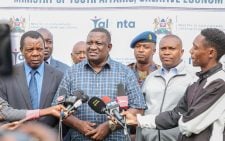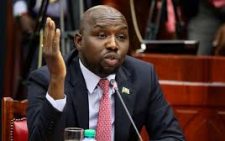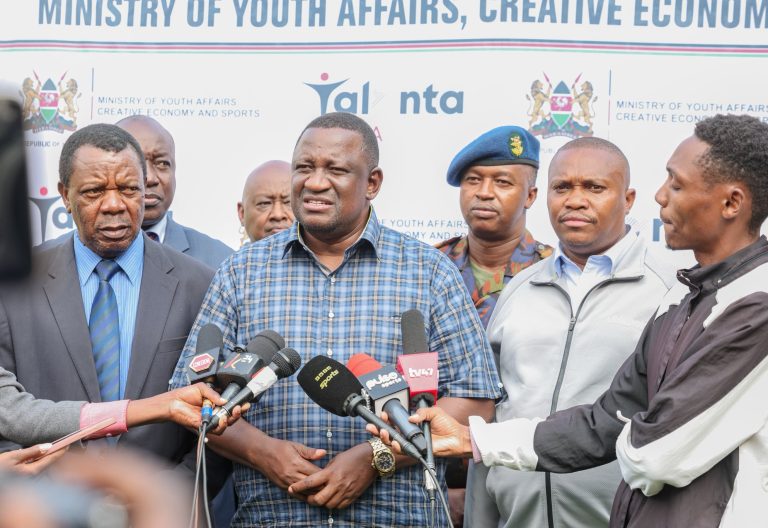Team managers say fixture delays hurting basketball’s growth, killing its appeal to sponsors

Kenya’s top basketball league has come under fire from team managers who accuse the Kenya Basketball Federation (KBF) of running one of the longest and most erratic seasons in East Africa, a chaotic fixture schedule blamed for driving away sponsors, frustrating players and inflating club expenses.
The lengthy, Kenya Basketball Federation (KBF)-managed, three-tiered Kenya National Basketball League (KNBL) is costly for team sponsors. Sustaining funding for the men’s and women’s Premier League, Division One as well as Division Two is proving difficult, as testified by corporate-backed and self-sponsored clubs through their TMs.
The frustrations of TMs over the arduous fixtures were highlighted in a recent story published in People Sports.
Chaotic fixture schedule
Speaking later to Wikendi Sport, Nairobi City Thunder (NCT) assistant TM Bernet Ojay stated, “The KBF league takes the longest time to conclude a season. Piecemeal release of fixtures results in the league taking almost eight months to conclude, compared with the shorter seasons in East African countries like Tanzania, Uganda, Burundi, Rwanda, and South Sudan.”
he went on to elaborate, “In Uganda, the league – mostly played in Kampala and Lugogo – lasts about six months. In Burundi, it’s even shorter. Tanzania’s league takes slightly longer due to the country’s size, while South Sudan has no league – only one basketball team, Cobra.”
He added: “In Rwanda, the league is professionally managed, like the NBA. It’s shorter, and there are no college or school teams involved, unlike in Kenya.”
In a joint letter addressed to KBF, team managers protested the piecemeal release of fixtures, saying it “disrupted match planning” and created an “unfair competition environment”.
They issued an ultimatum to KBF to release the second leg fixtures of the 2025-2026 season by March 31, 2025, or face a possible league boycott.
“We, the undersigned teams in the KNBL, formally request that the full second leg league fixtures be released by March 31, 2025,” the team managers stated, in part.
They argued that inconsistent fixture releases caused logistical and budgetary challenges in planning travel, ensuring player availability, engaging fans and raising gate collections for host teams.
Despite blaming KBF, Thunder’s assistant TM Ojay unapologetically placed the larger share of the blame on fellow TMs.
‘Team managers are the problem’
“KBF Fixtures Secretary Joseph Amoko is not the problem, TMs are. They approach him to reschedule games on flimsy grounds,” Ojay revealed.
He added: “Before drawing up fixtures, Amoko consults with TMs to account for school schedules and corporate team engagements such as Inter-Banks, KECOSO, and KUSA games. Under league rules, TMs are allowed to request changes for genuine reasons, but many exploit this to their advantage. TMs have 10 days after fixture release to raise issues, but rarely do.”
Professionalising basketball
Ojay and other stakeholders urged TMs to respect the fixture schedule to professionalise the league and attract reputable sponsors like Betika.
He praised Betika for awarding cash prizes and trophies to the 2023-2024 Premier League champions Equity Hawks and Thunder. Contacted for comment, Umoja TM Steve Kuta admitted that TMs contribute to fixture disruptions.
“There are genuine reasons, like sponsor activities. Longer seasons help with planning, but ultimately, the buck stops with KBF.”
Eldonet Platinum TM Benard Barasa agreed: “I agree 100 per cent. Some TMs mess up the fixtures, then blame KBF.”
Kisumu-based Lakeside coach Emmanuel Ochieng’ emphasised adherence to policy, saying, “KBF should stick to its fixture policy. Policy is policy, it’s that simple. Only genuine reasons like bereavements or university strikes should warrant changes.”
A Ulinzi Warriors official, who requested to have name concealed, concurred sttaing, “Very true, TMs are the problem. There is no unity. Some request changes based on inside info about their opponent’s form.”
Division One Zetech Titans TM Wycliffe Sirengo echoed this sentiment, citing an incident involving Coastal Kings official Bramwell. He had emailed Amoko to reschedule a game in Mombasa, yet Coastal players were in town participating in the FIBA Africa 3×3 Lite Quest Championship.
“The rescheduling was unfair. Zetech incurred heavy travel, accommodation, logistics and subsistence costs,” Sirengo lamented.














